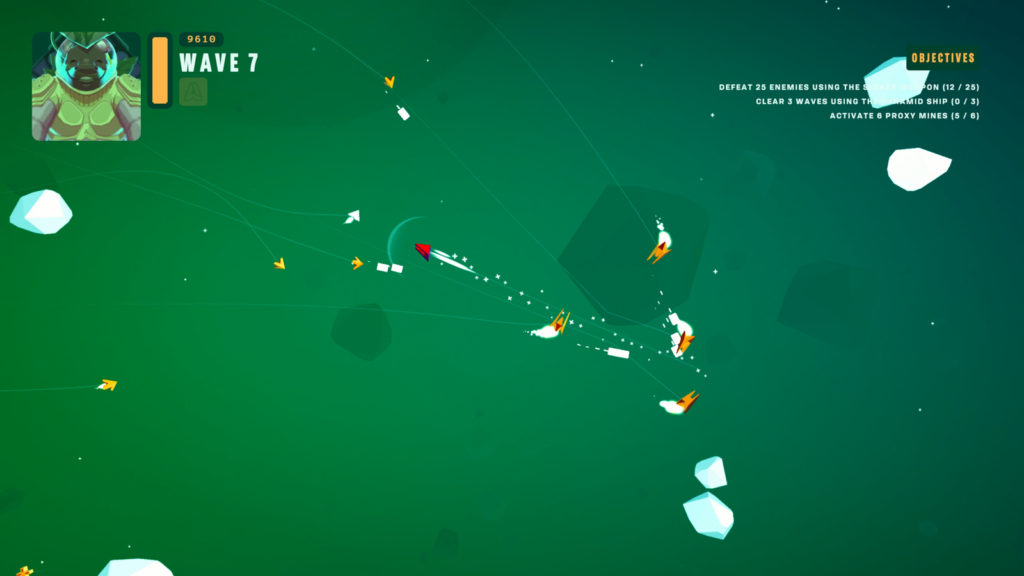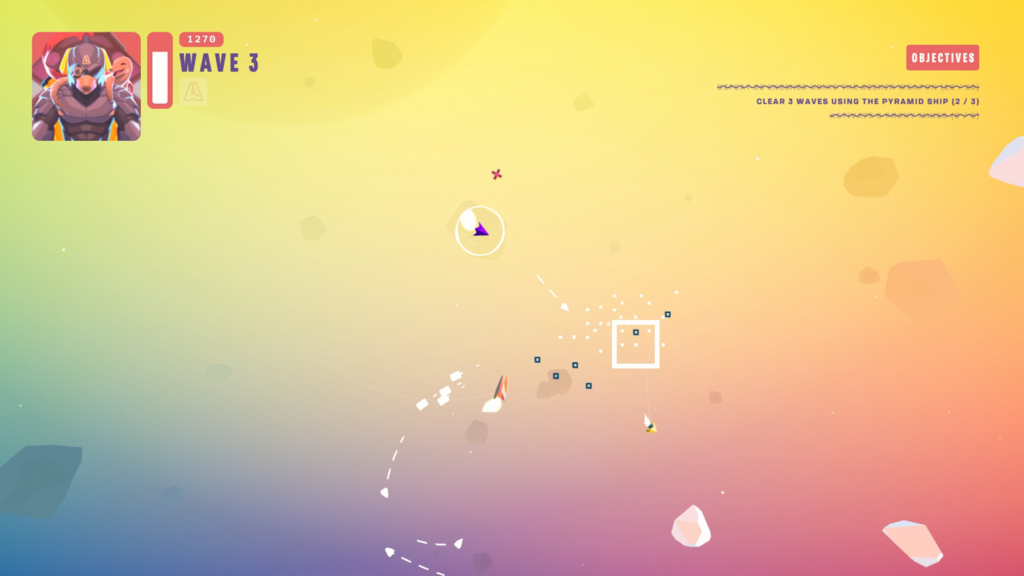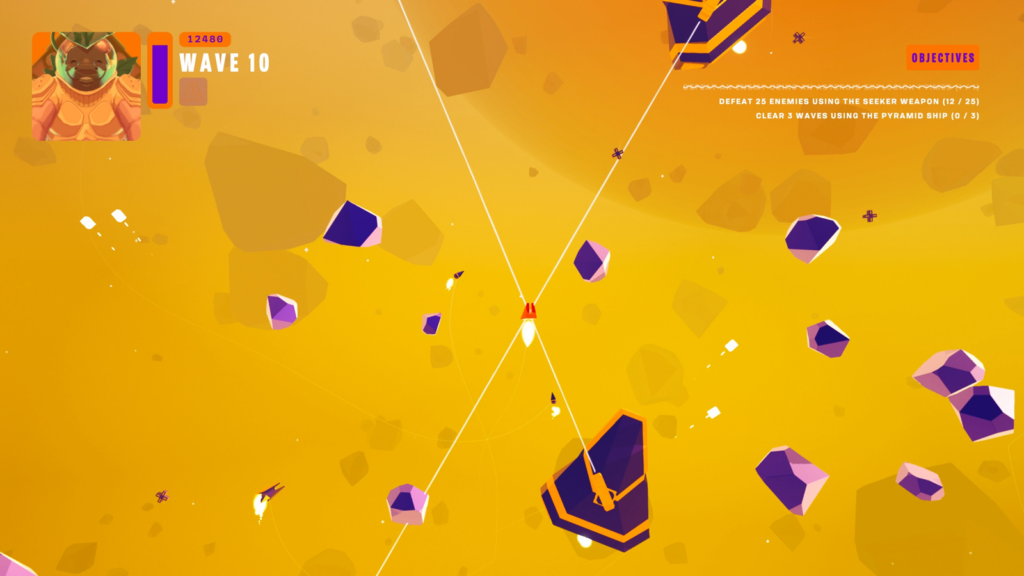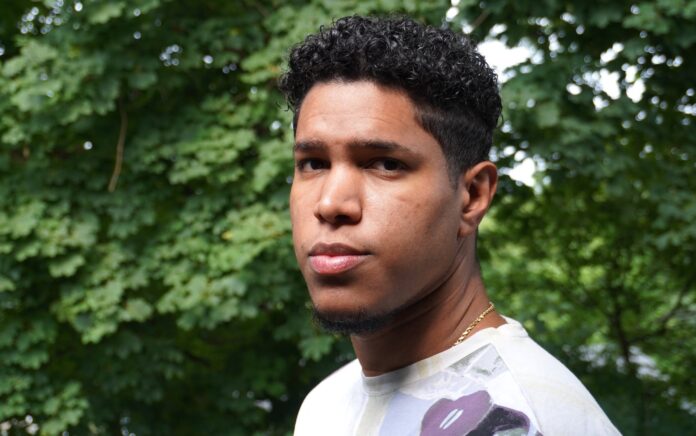Solo game developer Graham Reid has just released his latest game Super Space Club on Xbox and PC. The game blends the frenzied chaos of an arcade space shooter with the soothing sounds of lofi hip hop and jazz. “With both the visuals and the audio, I wanted to create a strong identity for the game that stood out amongst the crowd”, says Reid. He achieved just that, but it took great effort to finish the project. “I started Super Space Club as a side project and I never really had a solid plan. I paid the price for that when it took way longer to get to the finish line than I had intended. Having a solid, realistic plan is everything.”
While based in New York, Reid maintains a strong connection to his birthplace, Jamaica. Engaged in growing the game development community back home, he envisions a future where local talent doesn’t need to venture abroad to enter the industry. “At the moment, the scene is very small, but myself and a few other people are hard at work trying to grow the community.” Through initiatives like the Windies Direct, Reid celebrates Caribbean-made games, fostering a vibrant gaming culture in the region.
Why did you become a solo developer?
“Honestly, I don’t think that I consciously chose to become a solo developer, but since I really enjoy each and every aspect of the development cycle, it has worked out for me so far. I do intend on collaborating with people in the future, but having the ability to make the majority of a game with my own skills and talents is very rewarding to me. I realized that this was something that I could accomplish once Unity started to become popular as a game engine, and especially once there were hundreds of free tutorials on YouTube to help me in figuring everything out.”
What are the biggest advantages of working solo?
“The biggest advantage of working solo is that you have full control over the project. I call the shots, and I get to make whatever I want to make. This doesn’t mean that I don’t discuss the project with other people and get input from them, but it does mean that I get to be selective about what input actually goes into the project. It’s beneficial being solo to really be able to stick very close to the original vision of a project.”

And the biggest pitfalls?
“The biggest pitfall? You have full control over the project haha. For better or worse, I have full control, so any bad decisions, and plans made or lack thereof, any time spent not working, anytime 10 different things need to be done across 10 different jobs… That all falls on me. You really have to know yourself and have a certain level of discipline I think to successfully pull off being a solo developer, and even then, there are always rough patches. The hard part is that there’s nobody to lean on that’s working on the project when those patches arrive, it’s just you.”
What’s your creative process?
“I am a very visually driven person, so I take inspiration from everything I see. Whether it’s the world around me, artwork I see online, movies and shows I watch, or even other games I play, my process is very visual. It’s always a situation like, “Oh, this looks really dope. How would I make this into a game? What are the parts of this that would benefit from adding a layer of interaction? How can I tell a story in a world that feels like this?” I ask myself those kinds of things all the time, and I’ll just jot the ideas down alongside whatever the reference may be. Then, I just let the idea chill for a bit. If I can’t stop thinking about it, or if I come back to it and it’s still interesting to me, then I know it has potential and I delve deeper into the idea. That’s usually when I’ll share an idea with peers and friends and see if it’s as cool as I think.”

How do you stay motivated through (years of) development?
“It can be really hard to stay motivated, but generally, there are a few factors that keep me on the go. For one, I think I enjoy the process as much as, if not more than, the end product. For me, the process is also art, and viewing it like that helps me to keep moving forward. Another, more pressing reason, is money. If I don’t finish a project, I can’t make a living from it, and being ‘motivated’ will be the least of my concerns haha. So the days that I just don’t want to do anything, I get up and do them anyway because otherwise, the needle won’t get moved and I’ll be one step closer to being uncomfortable (read: broke).”
Will you ever work in a team or is it only solo for you?
“It depends! If both the right project and the right team or company comes about, I’d love to work with other people! There are some projects that are really dope, but the people aren’t. On the flip side, there are some people who are cool and I’d love to work with, but the project isn’t a right fit, or they don’t currently need what I have to offer. So mostly, I just work with myself and invite collaborators to contribute to my projects where it makes sense, most frequently, with music and sound design. A lot of the time though, it doesn’t feel like I’m working solo because I’m in constant communication with some close peers about our games, and while we’re all solo or have small teams, talking to each other and passing knowledge around makes it feel like we’re part of something bigger together. Being a part of a good, like-minded community is really important to me.”
For Super Space Club you choose a soundtrack of lo-fi beats. How did this unique mix of arcade gameplay and chill-hop tunes come about?
“With both the visuals and the audio, I wanted to create a strong identity for the game that stood out amongst the crowd. If you were to pick any random space themed game right now, There’s an extremely high chance that it would consist of dark and moody visuals paired with either atmospheric audio or some variant of techno/house music, something to indicate intensity. I wanted Super Space Club to look and feel like ‘a vibe’. So I directed my collaborators at Fat Bard to make the game feel as such. I wanted lo-fi hip hop/jazz, and at some point they suggested that we should add vocals to the tracks which was one of the best decisions we made, making the game stand out even more amongst the crowd. The juxtaposition of hectic gameplay alongside soothing audio and visuals really puts the game in a unique space all by itself, pardon the pun.”
What’s the biggest lesson you learned from this project?
“Planning is the most important step in making a game. If you fail to plan, you’re gonna take way longer to finish the project if you even do get to finish it. You could have under budgeted, overscoped, underestimated how long the game would take to make, tried to do something way out of your skillset… So many different ways to fail. I’ve found that, because I started Super Space Club as a side project, I never really had a solid plan, and I paid the price for that when it took way longer to get to the finish line than I had intended. Somewhere in the mix, I was so burnt out that there were months at a time that I wouldn’t get more than 5 hours of work done for the month. Having a solid, realistic plan is everything.”

You are based in Jamaica, right? How is the indie game scene there?
“I’m actually based in NY! I was born and raised in Jamaica and am very involved in the game dev scene down there. Ultimately, I want there to be a bustling scene so that people don’t have to leave the country -like I did- just to get into the industry. At the moment, the scene is very small, but myself and a few other people are hard at work trying to grow the community. Our latest effort was a digital showcase called the Windies Direct (a play on West Indies and indie game) to show off and celebrate Caribbean-made games from both locals and folks from the diaspora.”
The toll on your mental health can be quite high as a solo developer. How do you deal with that?
“Having a strong support system is a major way to stay mentally healthy. I’m grateful for my wife, my friends, my family, and my peers for being here for me every step of the way to lean on and to keep me grounded. It also goes back to planning once again – if you have a solid plan, then you can have a healthy development cycle and your mental state won’t be in jeopardy. Burnout sucks, self doubt sucks, crunch sucks. Properly planning can mostly prevent those things.”

